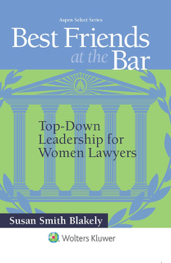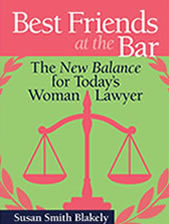‘Tis the season — the one when you MUST polish off those resumes and get them out to potential employers. This sounds easy, but … not so fast. If you found it easy, you might want to look again.
There are resumes, and, then, there are resumes. The Internet is full of information about how to write the perfect resume, and some of that information is good. Some also is not so good, so let me contribute my two cents to help you out. I am a very pragmatic person, so that is how I approach resume writing and legal writing in general. A little bit of “less is more” plus good solid design. That’s all it takes. Here’s what I mean.
The overarching goal for any resume is to make it a “clear path to understanding” for the reader. This is not just true of resumes, it also is true of the other forms of communication you will utilize in a legal career. The legal memorandum, for instance, and the legal brief — which, typically, is anything but brief — and the client letter. These all are forms of communication, which, for your own benefit, should be capable of easy comprehension and understanding. If there is no such clear path to understanding, this correspondence can find its way to the circular file prematurely, and your objective will not have been achieved.
The “clear path to understanding” must be achieved both in terms of content and form. Content is easier, so let’s take it first. Aim for a one page resume. Use this rule of thumb: If it is not possible to say it in one page, it probably is not worth saying. That should not be much of a challenge for law students and young lawyers, who have not been in practice long enough to list countless law publications and cases argued at the United States Supreme Court. Choose the highlights of your qualifications, which should include both academic achievements (and, yes, gpa), employment history and other pertinent background experiences. Only list references, who you are certain will give you good recommendations, and do not list any references without permission. And, if you have to choose between listing your experience as a Redskins Cheerleader or a clerk in a law firm, do NOT go for the most exciting experience. You get my drift.
You also should try to tailor your resume to your reader. If you have several different areas of expertise or background, concentrate on the one that best fits the firm or group you are targeting. You also should choose your references with that in mind.
As for form, it is almost as important as content. If the form is so difficult to navigate, the reader will never get to the content. Or, even if the reader does persevere through the challenging form to the substance, by that time it may be clear that you could be just as difficult to navigate as your resume. This does not bode well for getting the interview.
Choose the form of your resume with the “clear path to understanding” in mind. Avoid fonts that involve distracting swirls or are overly artistic. Keep information in easily readable block format, and use bold type for headings. Do not use a vertical orientation for your headings unless you expect your reader to assume a complicated yoga position to read the resume.
In other words, follow the KISS rule. Keep it simple, stupid! If that approach is good enough for the US Navy, it is good enough for you. Lawyers, recruiting officers, and clients are busy people. They appreciate all efforts to provide correspondence that is easily read and understood. You will be rewarded for your simplicity by having them actually read and, hopefully, remember why you are outstanding and why your experiences and talents are great fits for them.
Judges cannot be overlooked in this communications discussion. When you are explaining complex legal theories and case interpretations, use introductory phrases and references back to tie the arguments together. Create a “clear path to understanding” through your brief or memorandum as if you were leading someone through a dense forest or other morass. Avoid hanging pronouns that do not clearly link back to the noun or proper noun. It is just a matter of taking care with your writing. Avoid confusion at all costs.
So, those are my thoughts on your resume and legal writing in general. I have taught legal writing in law school, and I take it very seriously. Good writers and good communicators are highly prized in the law profession, so get started early. Begin with your resume, and lead your reader down that clear path to understanding … that path that actually leads to a job or compels the reader to agree with your arguments and rule in your favor. Save the flowery rhetoric and gimmicks for another project and another day.
Good luck!













